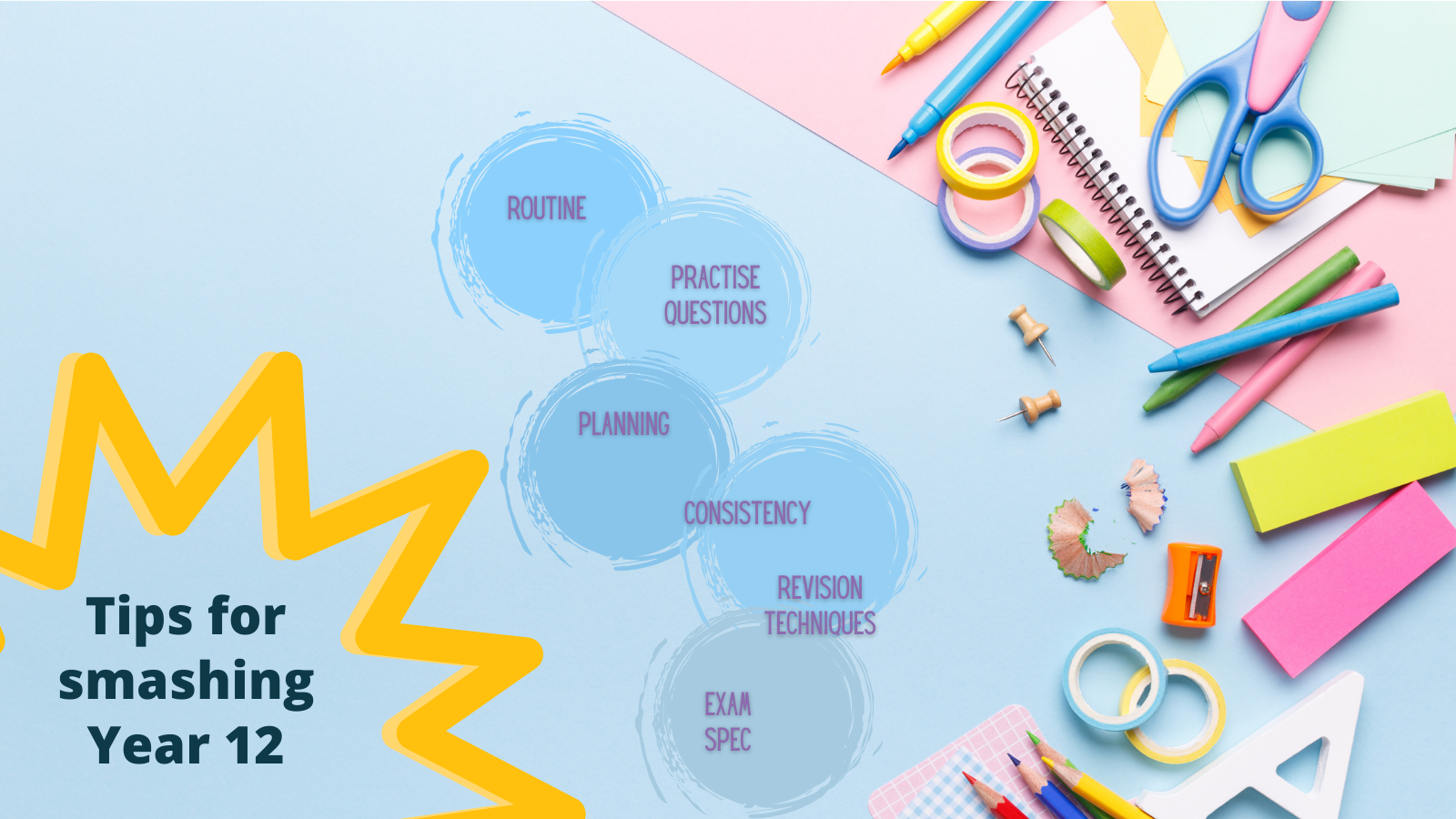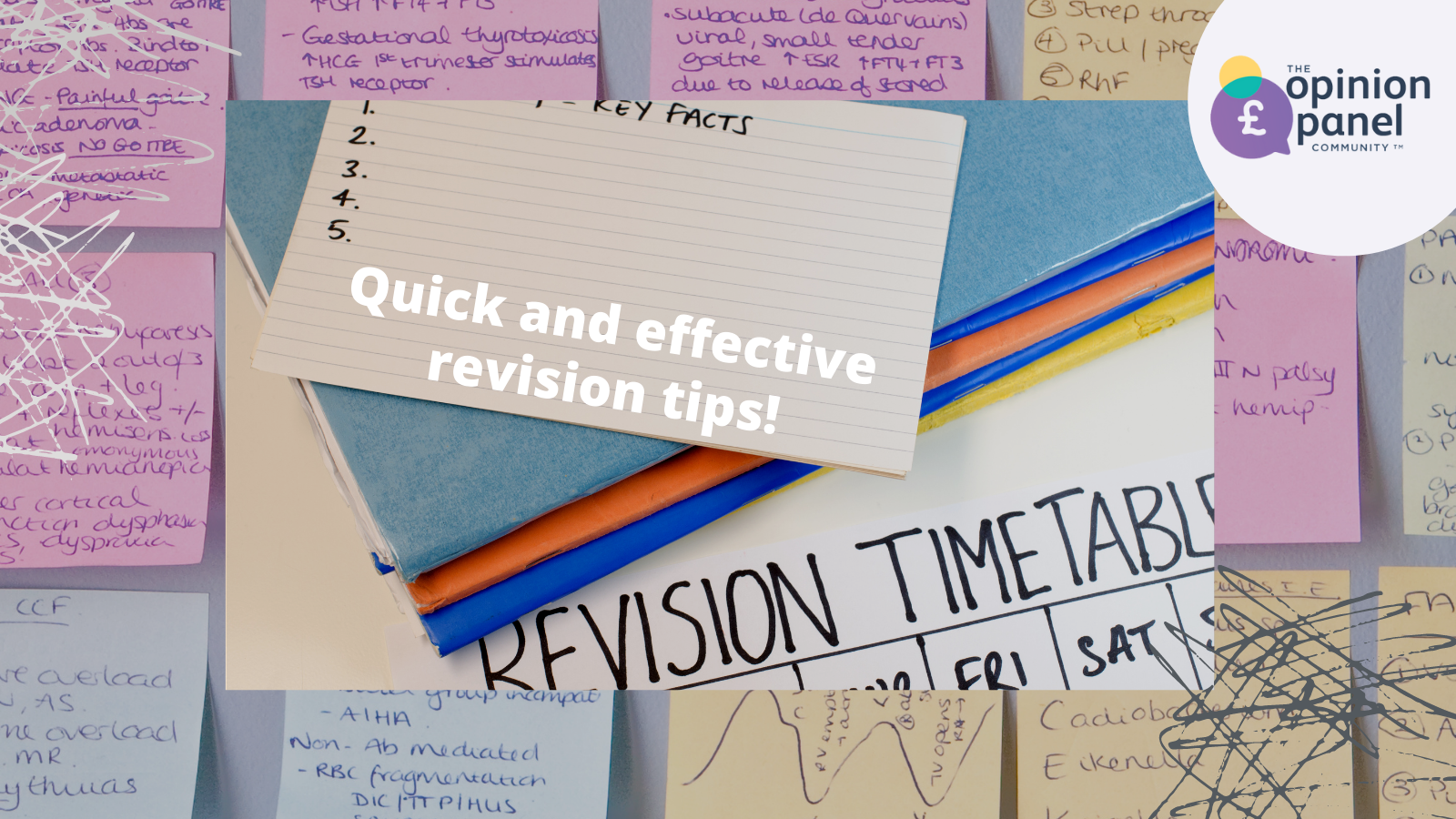
The transition from Year 11 to Year 12 can be quite overwhelming: more content, different teaching styles and much more independent learning…
I wanted to share my top 8 study and productivity tips that allowed me to get all A’s in my end-of-year exams.
1. Make sure you understand the content.
When you are introduced to new content, make sure you understand it. Do not leave it until it comes to revision time! That way you are just creating more work for yourself. The goal is to feel fairly confident about each topic before it even comes to revision
2. Make revision materials as you go.
A-levels are content-heavy. You cannot leave everything to the last minute. At the end of each topic, I made all my flashcards for that topic, so when exams were approaching, I didn’t have to worry because I had my revision resources ready. I strongly advise you to do the same; it will take away so much stress during exam season and you can go back to them whenever you need to refresh your mind.
3. Make sure you know the specification.
I downloaded a copy of the specification for each of my subjects and made sure my notes covered everything that was on it. I annotated the whole document with key points that I need to know for sure and used it to identify gaps in my knowledge.
4. Use active recall.
I hate to break it to you, but if you haven’t been using active recall, you haven’t been revising properly….. In case you aren’t aware, active recall is basically trying to remember something without any resources.
Examples include flashcards, exam questions, mind maps from memory and online quizzes. Active recall strengthens the memories of your content knowledge (make sure you check your answers though; you don’t want to be strengthening memories that are wrong!).
5. Exam Questions are your best friend.
Make sure you do exam questions (and I mean lots of them) and familiarise yourself with the mark scheme. The exam is not just about knowledge. It is also about exam technique and written communication skills so make sure you have a lot of practice. Often, especially for Science subjects, there are certain ‘buzz’ words or ‘stock answers’ that you need to learn to secure the marks and the official mark schemes are the way to do that.
6. Do little and often.
I did schoolwork every single day… That might sound excessive but I only did 1-2 hours a day. That way I didn’t have to cram all the content before the exam and I didn’t feel drained or overwhelmed. I do know people that revised for 8 hours straight before the exam but you have to question the efficacy of that…
1) You can only focus for a certain amount of time and past that time your revision will not be very productive
2) Constantly revisiting content is a much more effective way of learning and remembering.
7. Get yourself a routine.
A routine will keep you accountable, even on days when you don’t feel too motivated. Establishing a routine saves so much of your time and energy because you don’t have to debate whether to sit at your desk or not -you just do it on autopilot.
8. Work smart, not hard.
Do not pull all-nighters revising. Do not work so much that you burn out. The ultimate goal is to get the best results you can by working the least you can. Yes, you heard it right – the least you can.
Aim to work smart not hard: there is no point ‘revising’ with the TV on or spending hours colouring posters and calling that revision. That simply isn’t productive and time-worthy… Quality>Quantity.






I think… that all you have written here is completely true. The tip I think would be the most helpful, is being organized and using your time wisely, it will take you a long way.